* You are viewing Posts Tagged ‘Union Catalogue’
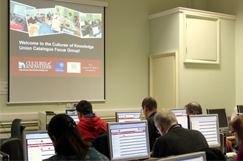
Testing the interface.
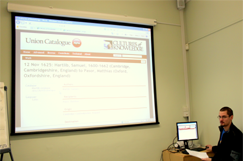
Discussing improvements.
With the front-end prototype of the Project’s union catalogue (introduced at our 2010 conference) now at an advanced stage of development – 39,225 letter records and counting! – Friday 4 February provided us with an opportunity to test its existing features and solicit additional suggestions from a range of end users from both within and outside the Project. Under the auspices of Dr Kim McLean-Fiander, a group of librarians, scholars, systems developers, web designers, and user experience specialists spent the morning working their way through a series of key tasks developed to test the catalogue’s function and design, and then recording their experiences, both positive and negative, on specially created feedback forms. Testers regrouped in the afternoon to discuss necessary refinements and to make additional suggestions to the catalogue on a screen-by-screen basis. The feedback we received was invaluable, and we would like to thank all of our participants for giving up their time to help us improve the catalogue, the public version of which will be launched in autumn 2011.
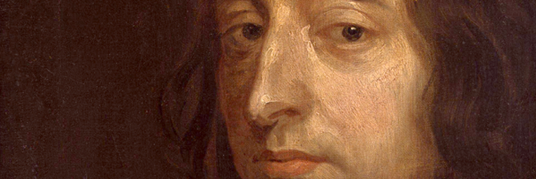
The Project is delighted to announce the presentation of transcriptions of almost all of the surviving correspondence of the jurist, historian, Hebraist, and polymath John Selden (1584–1654). The transcriptions have been generously provided by Professor Gerald J. Toomer, who prepared them (originally for his own research purposes, not for publication) in the course of the research for his magnum opus John Selden: A Life in Scholarship (Oxford: Oxford University Press, 2009). Selden, many of whose letters survive among the holdings of the Bodleian Library, was widely regarded as the most important scholar in Britain in the seventeenth century. He was a major antiquary and historian of English law, whose work was unrivalled before Maitland in the nineteenth century. He was also a central figure in the transmission of Oriental learning to the West, and was acknowledged in his lifetime as one of the greatest Christian authorities on Jewish law and history. He encouraged the study of Arabic, and produced the first English edition of an Arabic text. He was also an internationally recognised theorist of international law (in his Mare Clausum) and natural law (De Iure Naturali et Gentium). His works were caught up in many of the most controversial religious and political issues of the day, provoking praise and polemic in Britain and Europe. His correspondence network extended to northern Europe and eastwards to Aleppo.
The discussions which led to Professor Toomer’s generous agreement to the presentation of these transcriptions on our website were initiated at and facilitated by the international conference John Selden, 1584-1654: Scholarship in Context (Magdalen College, Oxford, 24-26 June 2010), organized by Thomas Roebuck and Jeffrey Miller in association with the Centre for Early Modern Studies and the Centre for the Study of the Book.
The transcriptions will be available in a fully searchable form within our union catalogue at its launch in September 2011. In the interim, we are pleased to be able to provide them as a pdf file (13.5 MB).
Please note that the copyright of the transcriptions remains with Professor Toomer, and that you should not quote from them in papers or scholarly publications without prior written permission (please contact the Project in the first instance). Professor Toomer would also like it to be emphasised that the document is not a conventional scholarly edition, and should not be judged by those standards; the transcriptions were prepared for private use rather than for publication, and in most cases have not been checked against the originals.
Kim McLean-Fiander
November 12, 2010
Conferences and Workshops, Events, Project Updates, Projects and Centres
Tags: Bodleian Resources, Databases, Digital Miscellanies Index, Digitization, Eighteenth Century, Electronic Enlightenment, Seventeenth Century, Union Catalogue
A report on the roundtable is now available on the CEMS blog
 On Thursday 18 November 2010, the Centre for Early Modern Studies (CEMS) at Oxford will host a roundtable presentation of three early modern digital projects, comprising Cultures of Knowledge (James Brown), Electronic Enlightenment (Robert McNamee), and the Digital Miscellanies Index (Abigail Williams and Jennifer Batt). The event will take place from 12.30-2.00pm at the Oxford e-Research Centre, 7 Keble Road. Tea and coffee will be provided, but please bring your own lunch. For more information, visit the CEMS website.
On Thursday 18 November 2010, the Centre for Early Modern Studies (CEMS) at Oxford will host a roundtable presentation of three early modern digital projects, comprising Cultures of Knowledge (James Brown), Electronic Enlightenment (Robert McNamee), and the Digital Miscellanies Index (Abigail Williams and Jennifer Batt). The event will take place from 12.30-2.00pm at the Oxford e-Research Centre, 7 Keble Road. Tea and coffee will be provided, but please bring your own lunch. For more information, visit the CEMS website.
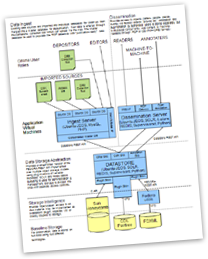 Neil Jefferies, who oversees the technical attributes of our union catalogue, will be presenting on the digital components of the Project next month at a conference entitled Digital Library: Digitising and Accessing Content (Slovakia, 22-24 September 2010). The event will bring together libraries from across Europe to share technologies, best practices, and emerging global standards in the field of large data sets and metadata preservation in the cultural and heritage sectors. Neil, who will also be delivering a keynote lecture at the conference, will be describing the catalogue’s innovative system architecture and its relationship to the Digital Asset Management System, which has been developed as a platform to support digital library projects within Oxford. Further details are available on the conference website.
Neil Jefferies, who oversees the technical attributes of our union catalogue, will be presenting on the digital components of the Project next month at a conference entitled Digital Library: Digitising and Accessing Content (Slovakia, 22-24 September 2010). The event will bring together libraries from across Europe to share technologies, best practices, and emerging global standards in the field of large data sets and metadata preservation in the cultural and heritage sectors. Neil, who will also be delivering a keynote lecture at the conference, will be describing the catalogue’s innovative system architecture and its relationship to the Digital Asset Management System, which has been developed as a platform to support digital library projects within Oxford. Further details are available on the conference website.
James Brown
July 14, 2010
Conferences and Workshops, Events, Project Updates
Tags: Communication, Databases, Digitization, Europe, History of Science, Networks, Royal Society, Samuel Hartlib, Seventeenth Century, Union Catalogue
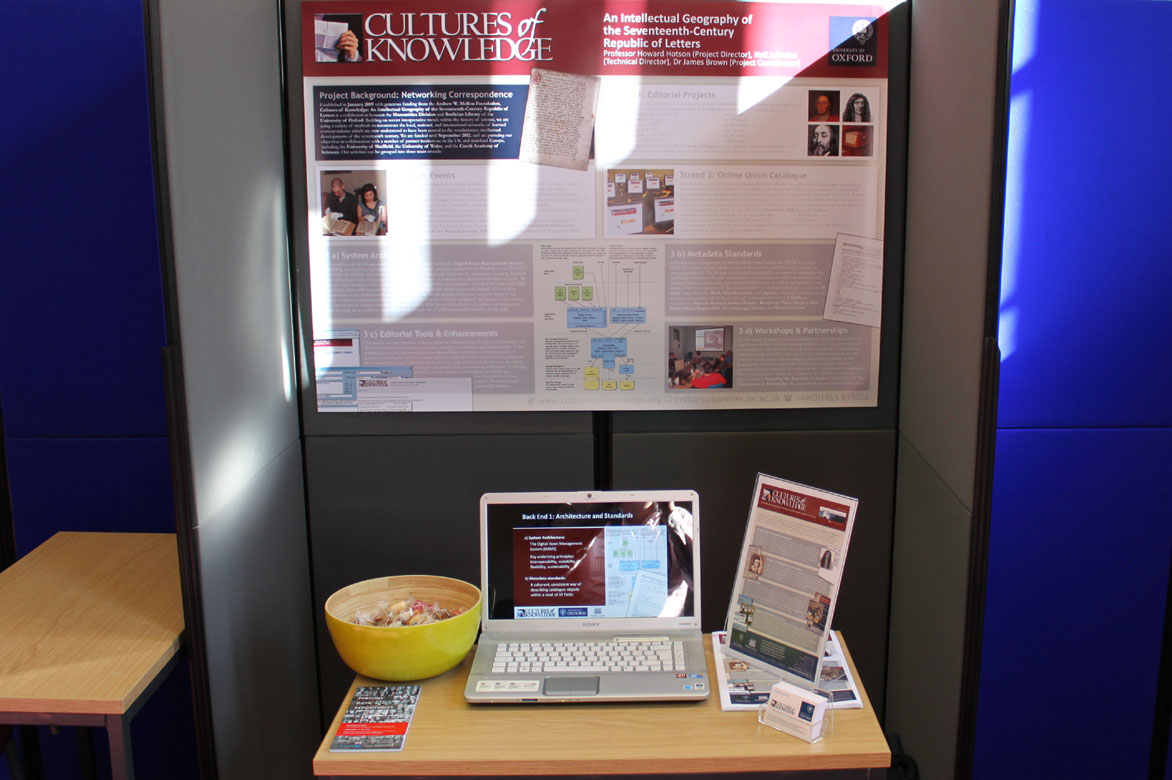
Our poster and stand at DH2010.
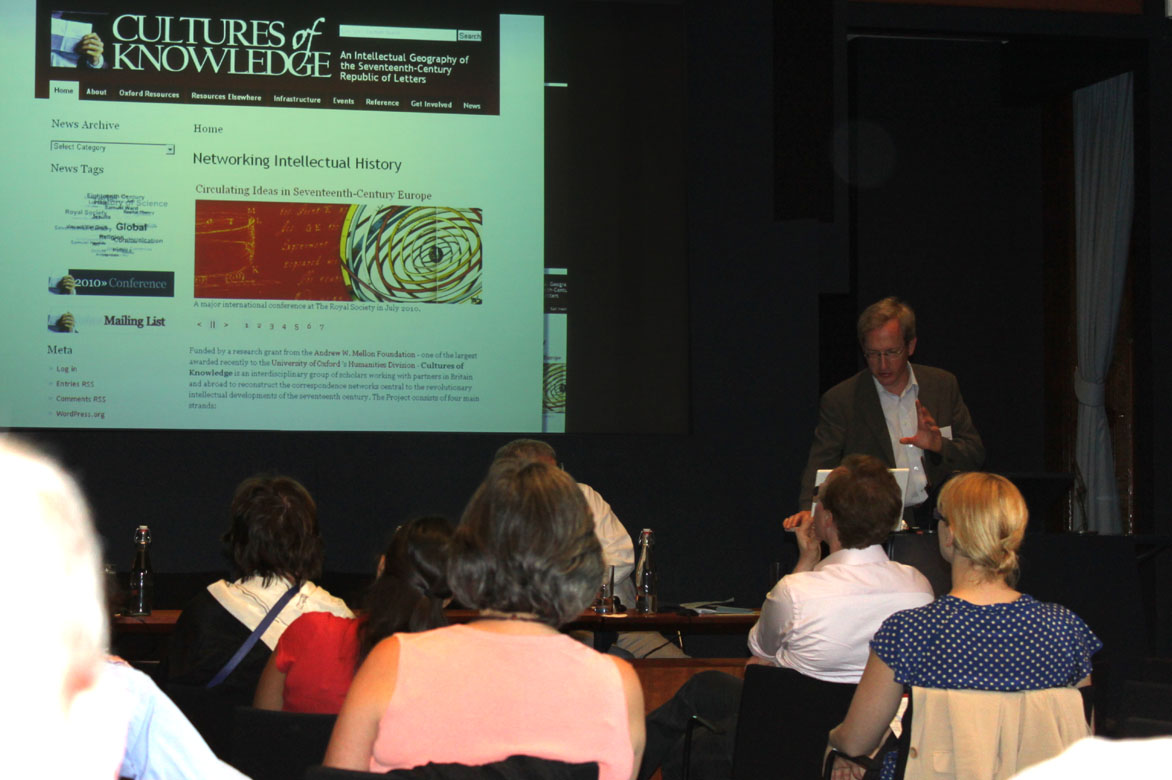
Presenting at the Royal Society.
Cultures of Knowledge headed to London last weekend as the Project Director and Coordinator braved thirty-degree metropolitan temperatures to share the Project’s research at two events. At Digital Humanities 2010, the flagship annual meeting of the digital humanities community hosted this year by King’s College London, we presented a poster, which focused mainly on our union catalogue and its technical underpinnings. We received very useful feedback and discovered and made connections with some highly complementary projects, including the initiative discussed below. Meanwhile, at the kind invitation of our collaborator Mark Greengrass, Howard Hotson co-delivered a keynote address at Circulating Ideas in Seventeenth-Century Europe: Networks, Knowledge, and Forms, a conference at the Royal Society organised by Ruth Connolly (University of Newcastle), Felicity Henderson (Royal Society), and Carol Pal (Bennington College). Building on Mark’s overview of Hartlib’s significance as an intelligencer and the trials and tribulations of the Hartlib Papers Project, Howard used a description of the place of Hartlib and his letters within Cultures of Knowledge as the basis for a more general overview of the Project and its aspirations, especially within the digital sphere.
Download the poster presented at DH2010
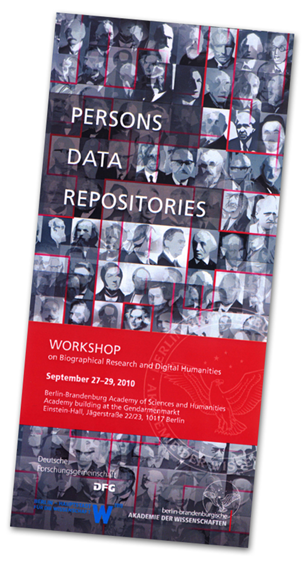 The challenge of describing, storing, and linking biographical and prosopographical information about historical actors and communities within a network environment is one faced by all digital correspondence projects. Fortunately, a workshop on Persons – Data – Repositories designed to explore these questions in detail will take place at the Berlin-Brandenbury Academy of Sciences on 27-29 September 2010. Organised under the auspices of the DFG project Person Data Repository, the event will discuss the development of tools and processes for handling person data which will enable both the automated merging of information while preserving a diversity of methods, an approach which requires both ‘cooperative and decentralized concepts’ and ‘new perspectives on data usage’ (connected in intricate ways to legal questions). For further information, including registration details, please see the workshop webpage.
The challenge of describing, storing, and linking biographical and prosopographical information about historical actors and communities within a network environment is one faced by all digital correspondence projects. Fortunately, a workshop on Persons – Data – Repositories designed to explore these questions in detail will take place at the Berlin-Brandenbury Academy of Sciences on 27-29 September 2010. Organised under the auspices of the DFG project Person Data Repository, the event will discuss the development of tools and processes for handling person data which will enable both the automated merging of information while preserving a diversity of methods, an approach which requires both ‘cooperative and decentralized concepts’ and ‘new perspectives on data usage’ (connected in intricate ways to legal questions). For further information, including registration details, please see the workshop webpage.










 Join
Join 